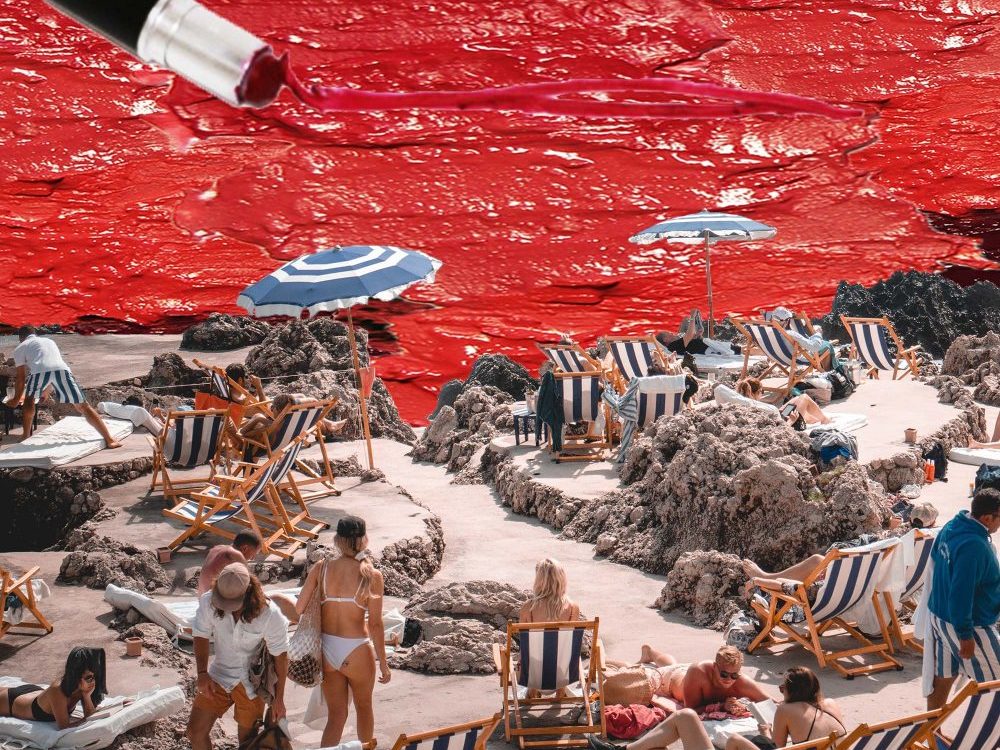We’ve all seen the terrifying image of a seahorse clutching a cotton bud enough times to know that the beauty industry is having a detrimental impact on the environment. Whether it’s the Blue Planet effect, Great Thunberg-inspired marches or the Extinction Rebellion movement, climate change and the plastic crisis has been thrust to the top of our collective conscious’ agenda of late, and the beauty industry has been labelled as one of the worst offenders. Zero Waste Week reports that 120 billion units of packaging are produced by the global cosmetics industry each year, most of which are not recyclable. Considering that there will be more plastic in the ocean than fish by 2050 if consumer habits don’t change, it’s an issue that needs to be addressed, and fast.
I’ve been following this issue closely for the last eighteen months and there is certainly an incoming sea change (pardon the pun). At a recent press launch from REN skincare, a brand making impressive headway with sustainability, CEO Arnaud Meysselle made a point that stuck with me: “packaging used to equal luxury, today packaging means waste.” In an industry that’s quite literally tied up in bows, boxes and tissue paper (just think of Rowan Atkinson in Love Actually); one where selling the experience of a product is as important as the product itself, the shift from brands and consumers is noticeable. On June 17th, haircare brand We Are Paradoxx launched the first Plastic Free Beauty Day while an array of other brands has introduced innovative solutions to environmental problems. From make-up brand Kjaer Weis and its refillable metal packaging to UpCircle, a skincare brand using repurposed coffee beans and Green People, an organic suncare brand introducing sugar cane tubes, change is afoot.
Amidst this increased awareness of environmentally-friendly beauty, a bigger movement is brewing. Following in the footsteps of slow fashion, slow beauty is gaining traction too. Although shopping consciously is great, cutting back your shopping is even better. After all, buying new things is never entirely sustainable. And while buying second hand or vintage doesn’t apply for beauty, a streamlined approach is possible.
Interestingly, it’s online content creators driving this change. For digital personalities, shopping has long been their bread and butter. Posting ‘hauls’ and ‘unboxing videos’ showcasing new products in exchange for affiliate revenue (a percentage of sales they’ve driven) or brand sponsorship is smart money making for individuals and beauty businesses alike. However, with growing environmental concerns, the minimalism movement hitting the mainstream and, with Kondo-ing on trend, excess is beginning to lose its appeal in some corners of the Internet.
‘Anti-haul’ videos where a YouTuber talks their audience through products they won’t buy, and why, are increasingly popular. Influencer Kimberly Clark posted her first anti-haul in 2015 and there are currently in excess of one million videos on the platform under the search term. Alongside anti hauls, the ‘No Buy’ movement is growing in tandem. ‘No Buy’ or ‘Low Buy’ challenges involve giving up shopping for certain items, in this case beauty, for a designated period such as a month or a year. An antidote to the consumerist consumption we so often see online, content creators share their journey and tips for shopping less with their community. Makeup Rehab, the Reddit thread for those “who are on a no-buy, low-buy, or just want to talk makeup and beauty without being bombarded with sales, hauls, and other tempting posts” now has nearly 59k members.
Hannah Louise Poston documented her ‘No Buy year’ via YouTube and social media throughout 2018. “My own consumerism had gotten out of control. I was stuck in a negative shopping cycle. The pleasure of buying things didn’t last long and each newly acquired thing quickly became mundane,” Poston told me. While she noted that social media played a part in her excessive shopping habits, she didn’t stop engaging with content during her ‘No buy year’. “Social media marketing can be particularly insidious but during the year it became clear to me which influencers offer enriching content and which are simply shilling product.” In fact, the community Poston built (she now has 20k subscribers on her YouTube) has helped thousands cut back on buying. “I get messages every single day from people all over the world who say that their experience is just like mine.” Now her ‘No Buy’ year is up she’s continuing to shop mindfully and create slow beauty content around controlled spending.
In a similar vein, Estee Laundry, an anonymous beauty collective on Instagram passionate about spreading the message of sustainability, launched its #shopmystash challenge in January 2019. “Consumerism is at an all-time high and many people possess way more beauty products than they need. The challenge encourages them to adopt a more minimalistic approach and create less waste,” they commented. They called on their followers to ‘shop their stash’ before going out to buy new products, a campaign so successful they’ve extended it indefinitely. The ripple effect is evident, and the hashtag now has 37,013 posts. “Consumers are beginning to see the impact that social media has in driving consumerism. They are much more informed and not as easily influenced. They’re realising that more doesn’t always mean better and they’re keen to play their part in protecting the environment.”
From a skincare perspective, there’s certainly a trend for using less products. ‘Skip-care’ and ‘skin-fasting’ provide a refreshing antidote to excessive Korean-inspired 9-step routines. ‘Skip-care’ involves omitting unnecessary products from your routine while ‘skin fasting’ encourages a break from skincare entirely to give your skin a ‘break.’ While expert advice on this topic is inconclusive, fans of these methods on Reddit forums such as Skincare Addiction wax lyrical about its benefits.
With slow beauty claiming to help your skin, bank balance and the planet, it’s only set to grow. As Estee Laundry told me: “slow beauty is growing so rapidly that in due time it will become the norm, and the new standard for beauty.”
Artwork by Esme Rose Marsh









